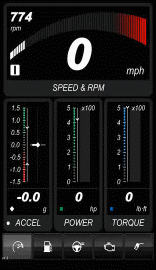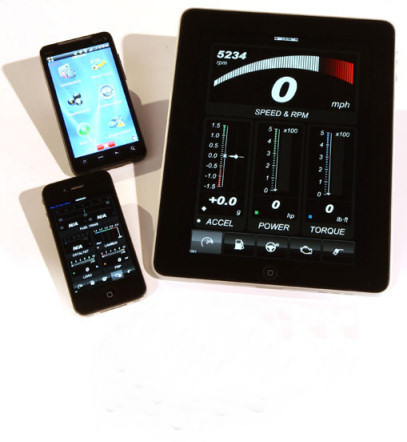|
WIFI ELM OBD2 Car Diagnostic Scanner
Read/Reset Codes by Proscan-Automotive.com |
|
|
|
|
|
Scan your OBD-II compliant vehicle for engine trouble codes and
real-time data straight to your iPhone, iPod Touch or iPad. The
diagnostic scanner will read and clear diagnostic trouble codes,
however requires additional software to complete these operations.
Software can be purchased from your apple store - Rev
/ FUZZYCar / DashCmd / SpeedPORT / Nova Scan etc. No software is
supplied you will need an additional purchase from your app store (I
recommend OBD Fusion or if you want the best 'dashcommand')
|
|
|
|
|
|
|
|
|
|
|
|
Features
Following are some of the parameters which can be read from the vehicle with the appropriate software:
Vehicle Speed
|
|
|
Have a look at the unit in action with 'dashcommand' - (not supplied)
|
|
 Compatible With all main OBD2 protocols
|
|






